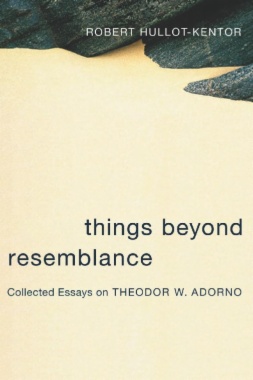

Theodor W. Adorno was a major twentieth-century philosopher and social critic whose writings on oppositional culture in art, music, and literature increasingly stand at the center of contemporary intellectual debate. In this excellent collection, Robert Hullot-Kentor, widely regarded as the most distinguished American translator and commentator on Adorno, gathers together sixteen essays he has written about the philosopher over the past twenty years.
The opening essay, "Origin Is the Goal," pursues Adorno's thesis of the dialectic of enlightenment to better understand the urgent social and political situation of the United States. "Back to Adorno" examines Adorno's idea that sacrifice is the primordial form of human domination; "Second Salvage" reconstructs Adorno's unfinished study of the transformation of music in radio transmission; and "What Is Mechanical Reproduction" revisits Adorno's criticism of Walter Benjamin. Further essays cover a broad range of topics: Adorno's affinities with Wallace Stevens and Nabokov, his complex relationship with Kierkegaard and psychoanalysis, and his critical study of popular music.
Many of these essays have been revised, with new material added that emphasizes the relevance of Adorno's thought to the United States today. Things Beyond Resemblance is a timely and richly analytical collection crucial to the study of critical theory, aesthetics, continental philosophy, and Adorno.